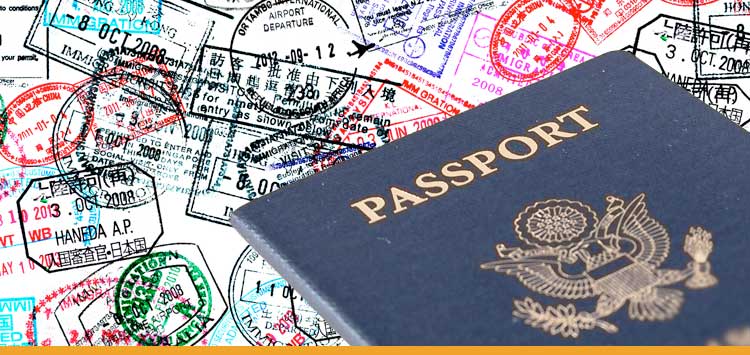Academia Abroad: How to Prep for Overseas Study
Don't hit the panic button just yet!
by Patricia Calzo Vega | September 10, 2016
Taking a break from work to study overseas is equal parts adventure, adolescence (throwback to), and adulting in hyperdrive.
It’s an adventure in the way of all journeys to new places. Even if you’re moving to a country you’re already familiar with, the experience of a visitor is worlds away from that of resident. It’s arguably a return to adolescence because most people, except those in academia, have little reason to stay at university longer than they should. And it’s an exercise in adulting because the process of moving overseas compels you to get your affairs in order.
You can’t just up and leave, even if you’re so inclined.
I’m barely two weeks away from taking this journey myself, so I should be at the home stretch. But it seems like there’s a million things I’ve yet to do, so this serves as part checklist, part cautionary tale for anyone considering life as an overseas student.

Part I: Getting In
In hindsight, getting admitted to my school of choice was the easiest step of the process. I’m a mid-career professional: I’ve been working in my field for a while now, and I have a pretty good idea of what I want to achieve in the next few years. I knew that the degree had to be related to my profession and that I could only realistically be away for a year so I didn’t have to spend more time rebuilding my savings and my contacts list.
It also helped that I had a target date: My work appointment expired last June 30, so I was really targeting the September 2016 intake. This allowed me to set aside time to shortlist schools, sort out admission requirements, and write a personal statement that skated the fine line between earnest and epal.
Which is not to say that I didn’t cram—of course I scheduled everything at the latest possible date and nearly missed out on scholarship opportunities. There’s a back story here involving whisky (good) and dengue (bad), but to make a long story short, I got in on a full(ish) ride.
A quick note about scholarships: Regardless of which one you pick, it’s going to be super competitive so you have to assess which terms of competition are more favorable to you. Make sure to read the fine print: working in an MNC (multi-national company) or international aid organization may render you ineligible for some scholarships, while government employees may be given more stringent requirements.
COSTS: Assorted fees for transcripts and official translations; IELTS testing fee, PHP 9,400. Lots of goodwill for academic and professional recommendations; hospitalization and treatment for dengue, roughly PHP 40,000 (after PhilHealth deductions).
Part II: Getting the Visa
Student visas are generally more resource-draining than tourist visas. These are short-term residency permits and, as such, require stricter background checks. In addition to showing all your academic credentials, you’ll have to show proof of funding for tuition and living expenses. Some even require health exams. (Scholarship people must note that not all programs cover visa fees and related expenses, so costs can stack up.)
In my case, I had to take a tuberculosis test, which officially registered an abnormal result. Not because I had TB, but because I have mild scoliosis, which was why the x-ray couldn’t be classified as normal. This was a non-issue, but it meant more paperwork for my visa application. I also had to pay the immigration health surcharge, which gives temporary residents access to the UK National Health Service.
Student visa applications may also require an interview wherein you will likely be asked about your program of study and future plans.
COSTS: UK Tier 4 General (Sponsored) Student Visa, USD 440 (PHP 21,117.11); UKVI immigration health surcharge, GBP 225 (PHP 14,470.02); accredited TB test (PHP 3,200)

Part III: Getting Ready
I applied for my visa on July 29, and while waiting for it to be processed, I started putting things in order. First priority was to schedule work commitments, so that all projects would be completed by the last week of August.
Then I made sure to fulfill the terms of my scholarship by getting an executive checkup so I could be issued a certificate of good health. I got my flu shot, scheduled my meningitis shot (UK universities strongly advise incoming students to get vaccinated) and other medical/dental appointments.
My visa arrived two weeks later, so I had to make a decision about my departure. My accommodation contract kicks in on September 17, so I scheduled my flight a week earlier so that I could visit relatives and recover from jetlag. Now I’m doing a modified Marie Kondo approach and streamlining my life down to two pieces of luggage and a carry-on.
I wish I could bring everything that gives me joy, but I have to consider versatility and ease of care. So my clothing is pared down to mostly neutral separates, with a few pretty things and cold weather clothing. I’ve narrowed my shoe selection down to six pairs, but I haven’t quite figured out which books to bring.
Leaving for overseas study doesn’t mean leaving financial obligations behind. I don’t live alone so I don’t have to contend with ending rental contracts and such, but because I live with my family, there are some monthly bills that I have to keep paying even when I’m out of the country.
So yes, that initial August 31 deadline freaked me out, but I’ve already updated my info for all my banks, got over my phishing trauma and activated online payments, and drew up SPAs to take care of all other transactions.
So, what’s left on my list? Lunches, coffee dates, and gaming nights with friends and family, which have proved to be a scheduling challenge, given our present traffic situation. I’ll miss them when I go, but I won’t miss the traffic.
COSTS: Executive checkup, PHP 8,800; Flu shot, PHP 1,200; Meningitis shot PHP 3,500; Assorted fees for medical and dental consultations; Notary fees for SPA.
Overall, monetary costs and documentary requirements are just the outward preoccupations. Packing is just a matter of prioritizing and managing space. Inwardly, it’s about psyching yourself up for shaping an entirely new phase in your life. It’s also about conditioning your mind to let go (at least temporarily) of things you’re leaving behind – and scooping out a snug place inside for things you will always carry in your heart.
Got your own tips and experiences in studying abroad? Let us know in the comments!









